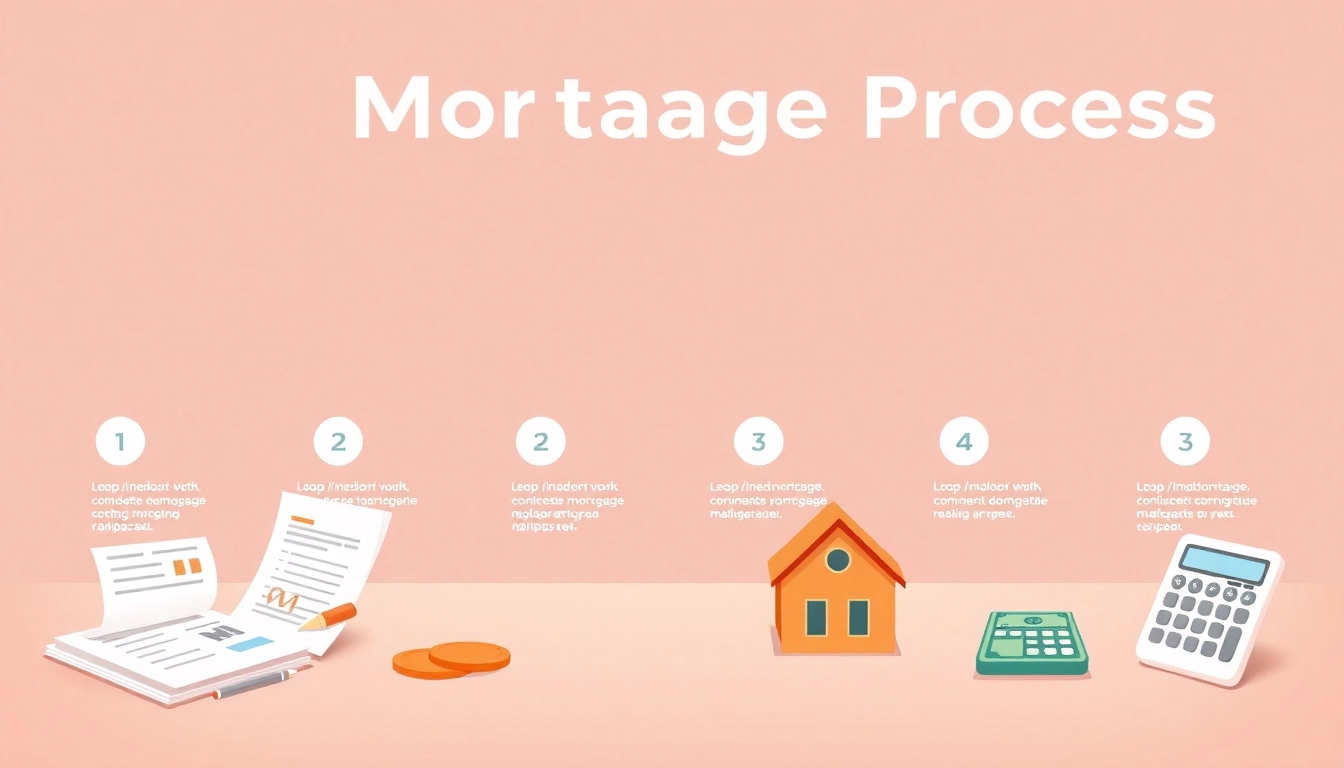Understanding The Global Real Estate Market
The world of real estate has transcended borders, providing investors with opportunities that were once limited to their local markets. Today, a real estate investment can span continents, providing potential rewards far beyond what domestic markets can offer. However, navigating the nuances of international real estate requires a comprehensive understanding of various factors that influence the market. In this article, we’ll explore how to find international real estate investment opportunities, examining trends, economic indicators, and practical strategies for effective cross-border investments.
The Importance of Global Market Awareness
Understanding the global real estate market is crucial for investors seeking to diversify their portfolios. Each country’s real estate dynamics are influenced by local culture, economic stability, and political climate. For instance, while investing in properties in stable economies such as Germany or Canada may promise steady returns, emerging markets like Vietnam or Brazil may present higher risks paired with the potential for significant appreciation. Therefore, gaining a nuanced perspective of these factors is vital to make informed investment decisions and mitigate risks associated with currency fluctuations and market volatility.
Key Trends Influencing International Investments
Several trends have emerged, making international real estate more appealing than ever. The rise of technology has enabled remote viewings, virtual property tours, and facilitated transactions that once required physical presence. Sustainability trends have also influenced investment choices, with many investors seeking properties that adhere to green building standards. Beyond technology and sustainability, demographic shifts, such as urbanization and aging populations, have transformed investment preferences in certain regions. For instance, cities experiencing rapid urbanization often see heightened demand for rental properties, creating lucrative investment opportunities.
Evaluating Economic Indicators by Region
Investing in international real estate requires a keen eye for economic indicators that signal market potential. Key metrics such as GDP growth, employment rates, population growth, and housing demand can provide insight into overarching market conditions. Investors should adopt a regional approach to analyzing these indicators, ensuring they understand both macroeconomic trends and local real estate conditions. Keeping track of these indicators will better equip investors to identify lucrative opportunities in the international real estate market.
Identifying Investment Opportunities
Identifying the right investment opportunities is essential to successful international real estate ventures. This entails utilizing various tools and resources to uncover and assess potential properties.
Utilizing Online Property Portals
The advent of technology has transformed how investors find international properties. Online property portals provide access to listings from around the globe, allowing buyers to filter options based on location, price, and property type. Websites specializing in international real estate can offer insights into market trends, pricing history, and even forecasts for appreciation. However, it’s crucial to verify the credibility of these platforms and perform due diligence on individual listings before making any commitments. Many portals also include local market reports, which can further enhance understanding of the investment landscape.
Researching Local Real Estate Markets
Beyond digital tools, researching local conditions can yield invaluable insights. Investors can subscribe to local real estate publications, join community forums, and even consult local experts to gain deeper insights into market trends. Monitoring local developments such as infrastructure projects and regional policies can also indicate potential growth opportunities. Furthermore, engaging in market-specific discussions via social media platforms or attending local real estate investment workshops can provide clarity on local nuances, helping investors tailor their strategies effectively.
Networking with Global Real Estate Professionals
Building a robust network of global real estate professionals can unlock new investment opportunities. Real estate agents, property managers, and local investors can offer guidance, provide access to off-market listings, and share insights specific to their markets. Networking extends beyond just finding properties; it can also help investors navigate local regulations, understand cultural differences, and even establish long-term partnerships. Attending international real estate conferences and utilizing professional social networks can be effective means for networking and learning from successful investors.
Legal Considerations for International Buyers
Investing internationally comes with a distinct set of legal considerations that can vary greatly by country. Understanding these complexities is fundamental for a successful investment venture.
Understanding Tax Implications
Taxation laws can significantly impact the profitability of an international property investment. Different countries may impose varying tax rates on capital gains, rental income, and property purchases. Investors should be diligent in researching both local and international tax laws that apply to them, often with the guidance of tax professionals specializing in cross-border transactions. Additionally, understanding tax treaties that may exist between the investor’s home country and the target market can result in strategic tax planning that minimizes liabilities.
Navigating Residency and Ownership Laws
Many countries impose specific residency and ownership regulations that potential investors must navigate. Some countries may limit foreign ownership of real estate or require specific permits for foreign investors. Others offer residency or citizenship by investment programs that can significantly benefit those looking to reside in or frequently visit their investment properties. Familiarizing oneself with these laws before investing can save significant time, effort, and financial resources down the line.
Engaging Legal Experts for Assistance
Engaging legal experts who specialize in international real estate transactions can be a game-changing advantage. They can provide advice on local ownership laws, assist with contract negotiations, and ensure that all due diligence tasks are completed thoroughly. It’s important to have professionals who are familiar with the specific regulations and practices of the market in which you are investing, as they can help avoid common pitfalls that can arise from misunderstanding local laws.
Funding Your International Investment
Financing international real estate investments can present challenges that differ from domestic transactions. Understanding the various funding options available is essential for securing the necessary capital.
Exploring Financing Options
Various financing options exist for international real estate investments. International banks, private lenders, and local financial institutions may provide financing tailored to non-resident buyers. Each option comes with its own terms, interest rates, and requirements, so thorough comparison is crucial. Additionally, exploring international mortgage loans and understanding specific lending criteria based on local laws can lead to favorable financing terms, thereby improving cash flow and investment viability.
Leveraging Home Equity for Investments
For many homeowners, leveraging equity from an existing property can be a cost-effective way to finance an international investment. By refinancing or taking out a home equity line of credit (HELOC), investors can access capital without liquidating their assets. This approach allows for the purchase of international properties while maintaining financial stability at home. However, this strategy involves understanding potential risks, including fluctuations in property values and the responsibilities of managing multiple investments.
Understanding Currency Risk and Management
Currency risk is an inherent component of international investments. Fluctuations in exchange rates can significantly impact the overall return on investment. It’s important for investors to consider hedging strategies to manage such risks effectively. Using multi-currency accounts, entering forward contracts, or maintaining a diversified currency portfolio can help in mitigating adverse impacts from currency volatility. Understanding how currency exchange rates affect purchasing power and future cash flows is essential for making prudent investment decisions.
Securing and Managing Properties Abroad
Once an investment property is secured, effective management is crucial to ensure ongoing profitability and compliance with local laws.
Hiring Local Property Management Teams
Hiring a local property management team can prove invaluable for foreign investors. These professionals provide expertise in navigating the local rental market, maintenance needs, and tenant relationships. Furthermore, they can handle day-to-day operations, allowing investors to focus on strategy and expansion. When selecting a property management team, consider their track record, understanding of the local market, and tenant screening processes to ensure proper management practices.
Implementing Efficient Maintenance Strategies
Regular maintenance is essential for preserving property value and ensuring tenant satisfaction. Establishing a clear maintenance plan that details how repairs and upkeep will be managed can help maintain efficient operations. This could involve regular inspections, emergency repair teams, and preventive maintenance schedules. Investors should also ensure open lines of communication with their property management regarding the condition of the property and any tenant concerns that arise.
Assessing Rental Market Viability
A thorough assessment of the local rental market is crucial to maximizing returns on investment. Understanding rental rates, occupancy trends, and tenant demographics can guide pricing strategies to ensure competitiveness. Investors may also engage local real estate agents to gain insights into rental trends and tenant preferences based on current economic conditions. Continuous market assessment can help investors make informed decisions regarding rent adjustments, renovations, or even potential property sales when the right opportunity arises.
In conclusion, navigating the international real estate landscape requires diligence, research, and strategic planning. By understanding the global market, identifying opportunities, considering legal implications, securing funding, and managing properties effectively, investors can position themselves for success in the burgeoning world of international real estate. These insights and strategies will empower you to capitalize on How to find international real estate investment opportunities with confidence and clarity.








Leave a Reply